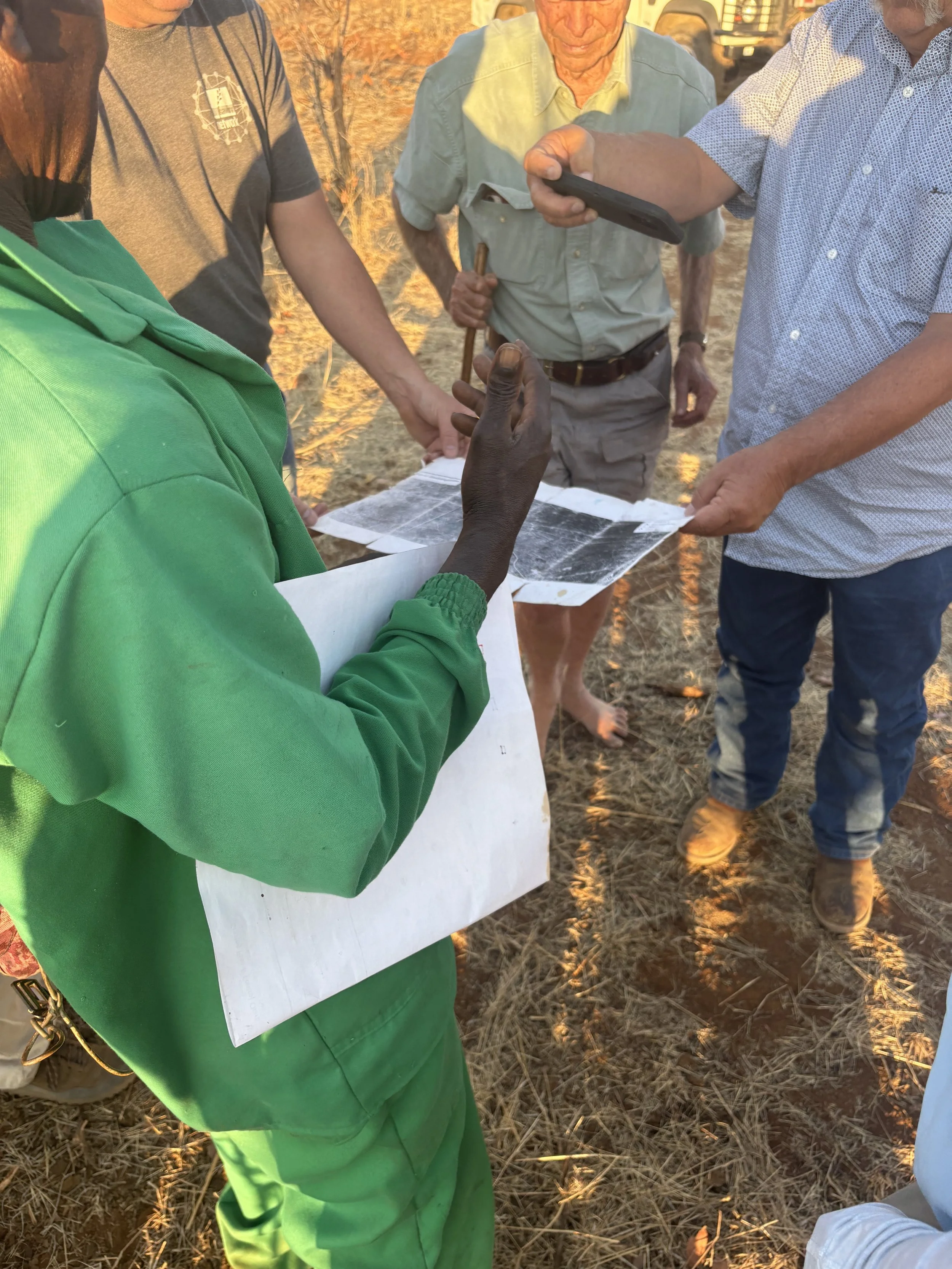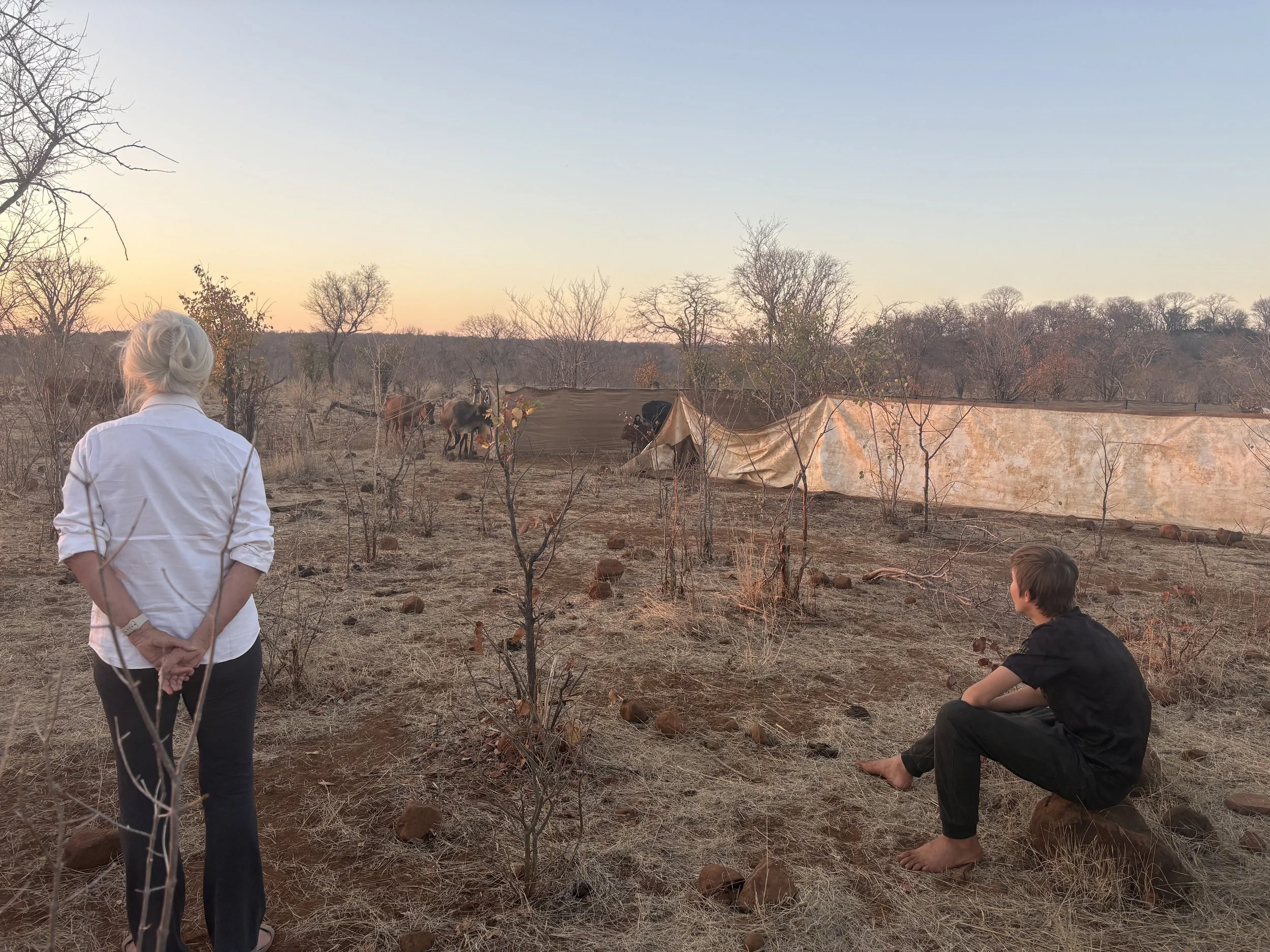A Journey Into Holistic Management at the Africa Centre in Zimbabwe
By Cameron King
This summer, I had the privilege of traveling to the Africa Centre for Holistic Management at Dimbangombe Ranch, just outside of Victoria Falls, Zimbabwe. My destination wasn’t just a place; it was an experience, an immersion into ways of thinking about our relationship with land, myself, family, community, and the future of humanity. How do we manage the complexity of it all?
As an Accredited Professional with the Savory Institute, I was there to attend a mastery class on Holistic Management taught by none other than Allan Savory, the pioneering thinker whose work has reshaped how we understand the connection between The Ecosystem, agriculture, and human survival. Guiding us alongside Mr. Savory was Byron Shelton and Jody Butterfield. For five days, I was joined by a diverse group of participants: ranchers, business leaders, educators, financial experts, and others, each bringing unique perspectives and insights to the table. All of us seeking knowledge and understanding. How must we behave now to provide for future generations?
The purpose of the gathering was not only to learn the principles of Holistic Management, but also to uncover its deeper meaning—how it transcends agriculture and applies to life, leadership, and the way we make decisions that impact our planet. Listening to Allan Savory, whose decades of experience radiated both wisdom and urgency, I gained more than technical knowledge. I gained clarity about the role Holistic Management can play in addressing some of the greatest challenges humanity faces, from desertification to food insecurity to climate change. How do we create change on a scale that can save humanity?



What struck me most was the group's collaborative spirit. Every person, regardless of background, contributed something valuable. Our classroom for the week was an open-air thatch-roof building where we were seated in roundtable fashion.
Conversations ranged from practical land restoration techniques to philosophical reflections on responsibility and stewardship. Some of the highest value I gained in the course was simply being on the land during our daily field trip. There, we were able to see the direct relationship between the state of the land and its management.
Holistic Management again shows how valuable it can be in any situation in life, from a mother buying groceries at the store to government officials managing wildlife in a national park. Solving global challenges requires not only innovation but also dialogue, humility, and the willingness to learn from one another. How do we facilitate conversations between decision makers on both sides of the fence?
While at the Africa Centre for Holistic Management (ACHM), I had the pleasure of meeting Brent Staplekamp. Back in February, Brent took over management of ACHM.
Coming from The Lion Project, Brent had story after story to tell of wild encounters and living in the bush. I shared with him stories of our cattle ranch and farm in the western United States. We have very different landscapes, environments, and community dynamics. What did we have in common? Cattle.
At ACHM, Brent manages a herd of roughly 350 cow-calf pairs. The cattle are managed by the grazing plan, and daily moves are carried out by a group of herders.
Each night, the cattle return to a canvas-sided corral for protection from predators. Predators include lions, leopards, hyenas, and painted dogs. The herders often have to chase off these predators in the dark with nothing more than a flashlight. It was moving to me to see that these men are willing to run into the dark with that flashlight, knowing that there is a 300-pound lioness out there somewhere, all to protect the cattle, which they earn a living caring for. Would we do the same for our cattle here back home, armed with nothing more than a flashlight?
As I left Dimbangombe, I carried more than just notes and lessons. I carried a renewed sense of responsibility and hope. I also feel I gained lifelong friendships and networking connections, which can only help propel the work of the Savory Institute forward. Holistic Management is not just a method—it is a mindset, a framework for management that aligns with the well-being of the land and people, for generations to come. To teach Holistic Management, you must become a practitioner of it. Not just in your business or on your land, but in your home and your community. My time at the Africa Centre was a powerful step on this journey, and I know its impact will continue to guide my work and outlook long into the future. How must we behave to support the future resource base we want for our children and generations to come?
We must be willing to change.
Cameron King
Savory Accredited Professional | King Land & Cattle



